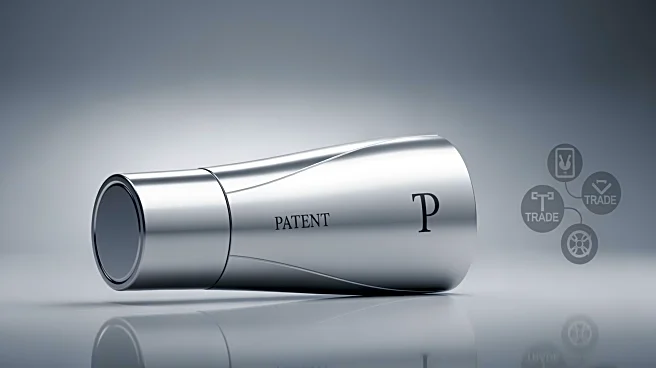What's Happening?
The cosmetics industry in the United States is facing significant challenges due to shifting tariff rates and ongoing legal uncertainties. These tariffs, introduced by the Trump administration, range from 10% to 41% and affect most cosmetics-related imports.
As the industry is heavily reliant on international trade, these tariffs are disrupting production schedules and complicating the outlook for companies. In response, cosmetics companies are increasingly focusing on patent protection to safeguard their research and development efforts and maintain a competitive edge. Patents, which can be granted for new and non-obvious products, processes, and uses, are seen as valuable intellectual property assets that can provide market exclusivity and ensure a return on investment.
Why It's Important?
The broader significance of this development lies in the potential impact on the cosmetics industry and its stakeholders. With tariffs causing disruptions to supply chains and increasing import costs, companies are under pressure to maintain their market position and manage pricing uncertainty. Patent protection offers a strategic advantage by preventing competitors from copying innovations, thus securing market exclusivity. This can help companies minimize loss of market share and maximize the effects of decreasing R&D budgets. Additionally, patents can attract investment and business opportunities, providing a buffer against the volatility caused by tariffs. Consumers may face rising prices as companies decide whether to pass on increased costs, highlighting the importance of patents in stabilizing the industry.
What's Next?
As the legal battle over the Trump administration's tariffs continues, cosmetics companies must navigate potential disruptions and adapt their strategies. The Federal Circuit has ruled that the tariffs are an overreach, and the US Supreme Court is set to hear the administration's appeal. Meanwhile, companies may need to adjust supply chains, potentially moving them to countries with more favorable trade agreements. Obtaining patents in these new jurisdictions can help secure a stable position and reduce competition for manufacturing inputs. Companies are also likely to explore partnerships, mergers, and acquisitions to raise capital and strengthen their market position amid ongoing uncertainty.
Beyond the Headlines
The focus on patent protection in the cosmetics industry highlights deeper implications, such as the role of intellectual property in fostering innovation and competitiveness. Patents can enhance brand credibility and provide licensing revenue, which is crucial in a time of economic volatility. Moreover, the integration of cutting-edge technologies like artificial intelligence in product development can be patented, offering additional competitive advantages. This underscores the importance of a robust patent strategy in navigating global market disruptions and ensuring long-term profitability.














